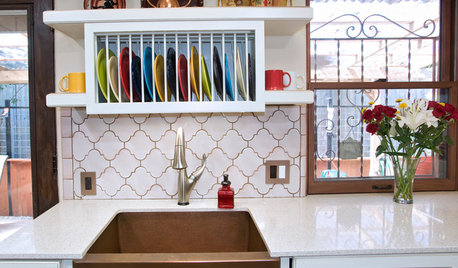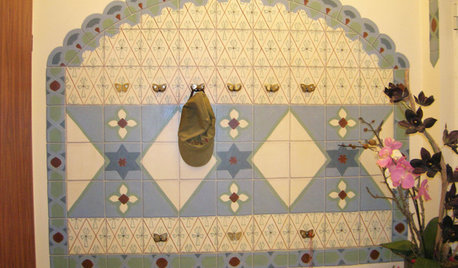DishDrawer as a drying rack?
dton13
11 years ago
Featured Answer
Sort by:Oldest
Comments (18)
dadoes
11 years agodton13
11 years agoRelated Professionals
Fresno Kitchen & Bathroom Designers · Owasso Kitchen & Bathroom Designers · Forest Hill Kitchen & Bathroom Remodelers · Glade Hill Kitchen & Bathroom Remodelers · Cocoa Beach Kitchen & Bathroom Remodelers · Galena Park Kitchen & Bathroom Remodelers · Oklahoma City Kitchen & Bathroom Remodelers · Roselle Kitchen & Bathroom Remodelers · Saint Augustine Kitchen & Bathroom Remodelers · Saint Helens Kitchen & Bathroom Remodelers · Shawnee Kitchen & Bathroom Remodelers · Sioux Falls Kitchen & Bathroom Remodelers · Fairmont Kitchen & Bathroom Remodelers · Wyckoff Cabinets & Cabinetry · Worcester Plumbersdadoes
11 years agoEric Tam
8 years agopractigal
8 years agoEric Tam
8 years agolast modified: 8 years ago12crumbles
8 years agosjhockeyfan325
8 years agostrikeraj
8 years agogreenlaker7
8 years agolast modified: 8 years agopractigal
8 years agodadoes
8 years agoTony Vogel
6 years agoM
6 years agoTony Vogel
6 years agoM
6 years agoTony Vogel
6 years ago
Related Stories

KITCHEN DESIGNDish-Drying Racks That Don’t Hog Counter Space
Cleverly concealed in cabinets or mounted in or above the sink, these racks cut kitchen cleanup time without creating clutter
Full Story
Dry Your Garden Herbs for Casual Fall Decor
Snip some sage and round up the rosemary. Dried herbs are just as great for autumnal arrangements as they are for cooking
Full Story
PRODUCT PICKSGuest Picks: 20 Towel Racks to Better Your Bath
Sleek to quirky to rustic, these towel racks are anything but ho-hum
Full Story
BATHROOM DESIGNYour Bath: Hotel-Style Towel Racks
Get the Great Look of an Upscale Hotel's Wall-Mounted Towel Shelf
Full Story
DECORATING GUIDESMake a Cool Block-Printed Coat Rack
Hang fall's hats and scarves on great patterned coat hook you can make for less than $25
Full Story
THE HARDWORKING HOME8 Laundry Room Ideas to Watch For This Year
The Hardworking Home: A look at the most popular laundry photos in 2014 hints that dog beds, drying racks and stackable units will be key
Full Story
LAUNDRY ROOMSHouzz Call: Show Us Your Wonderfully Efficient Laundry Room
Got a drying rack, a folding table or clever storage in your laundry room? We want to see it!
Full Story
SHOP HOUZZShop Houzz: Dish It Out
The prettiest dishes, drying racks and dish towels for your kitchen
Full Story0

SHOP HOUZZShop Houzz: The Kitchen Cleanup Sale
Save up to 50% on dish towels, drying racks and other helpers for tidying up
Full Story









strikeraj